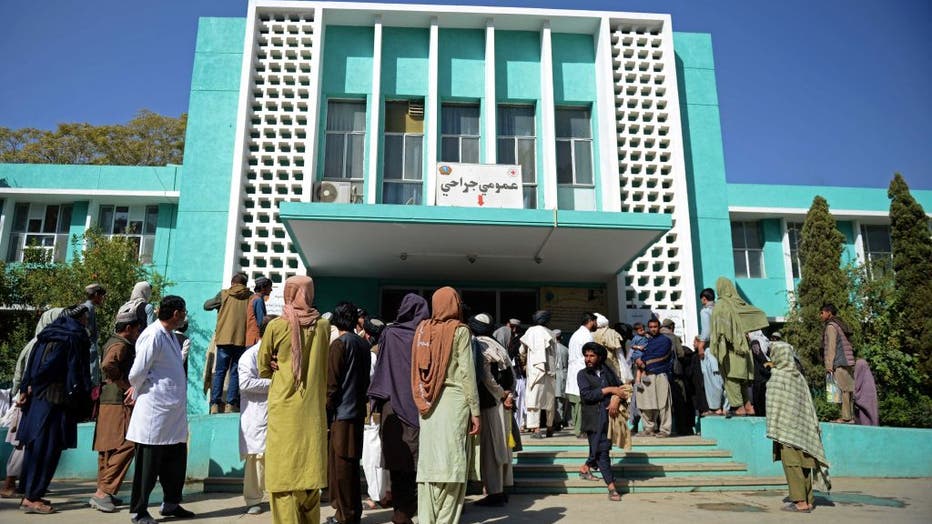ISIS claims responsibility for mosque bombing in south Afghanistan
KABUL, Afghanistan (AP) - The Islamic State group claimed responsibility for a deadly suicide bombing on a Shiite mosque in southern Afghanistan that killed 47 people and wounded scores more. Relatives laid the bodies of the victims to rest Saturday and called on the Taliban to protect them.
IS said in a statement posted late Friday on social media that two of the group's members shot and killed security guards manning the entrance of the Fatimiya mosque in Kandahar province.
One detonated his explosives at the entrance of the mosque and the other inside.
RELATED: Suicide attack at mosque in Afghanistan's Kandahar province kills 47
IS’s news agency Amaq in a statement gave the names of the attackers as Anas al-Khurasani and Abu Ali al-Baluchi, both Afghan nationals.
The families of the victims Saturday dug their graves and carried the bodies to their final resting place. In total, 63 graves were dug, but the Taliban's chief for the provincial department of culture and information maintained the official death toll was 47.
"There are so many who have lost body parts, and among those in hospital in serious condition, I don't know how many more numbers will be added to the death toll," said community elder Hajji Farhad.

People stand outside a hospital where victims of suicide bombing on a Shiite mosque are being treated in Kandahar on Oct. 16, 2021, a day after 41 people were killed and scores were injured in a suicide bomb attack claimed by the Islamic State group.
Shiite leader Sayed Mohammed Agha called on the Taliban government to take serious measures to protect the Shiite minority, "because our enemies will harm our society by any means they can."
The attack came a week after a bombing claimed by the local Islamic State affiliate killed 46 people at a Shiite mosque in northern Afghanistan, raising fears that IS — an enemy of both the Taliban and the West — is expanding its foothold in Afghanistan.
Friday's attack was the deadliest to strike Afghanistan since the dramatic U.S. exit from the country, which allowed the Taliban to seize control of the Afghan capital. It was also the first major attack by the group in the country's south.
IS carries out frequent attacks in its eastern stronghold, but recently has shown signs of expansion, with attacks in the north and Kabul.
The attacks have brought into question the Taliban's ability to counter the growing IS threat.
The Taliban have pledged to restore peace and security after decades of war and have also given the U.S. assurances that they will not allow the country to be used as a base for launching extremist attacks on other countries.

